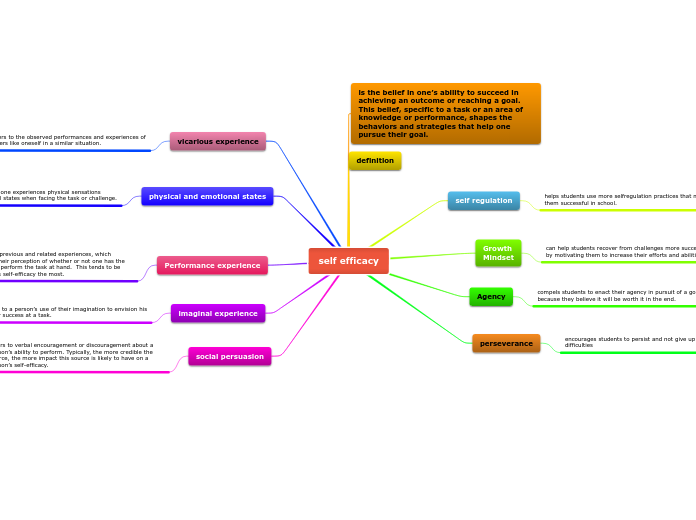self efficacy
is the belief in one’s ability to succeed in achieving an outcome or reaching a goal. This belief, specific to a task or an area of knowledge or performance, shapes the
behaviors and strategies that help one pursue their goal.
definition
self regulation
helps students use more selfregulation practices that make them successful in school.
Growth
Mindset
can help students recover from challenges more successfully by motivating them to increase their efforts and abilities.
Agency
compels students to enact their agency in pursuit of a goal
because they believe it will be worth it in the end.
perseverance
encourages students to persist and not give up in the face of difficulties
vicarious experience
refers to the observed performances and experiences of
others like oneself in a similar situation.
physical and emotional states
refers to how one experiences physical sensations
and emotional states when facing the task or challenge.
Performance experience
refers to one’s previous and related experiences, which
can influence their perception of whether or not one has the competence to perform the task at hand. This tends to be what influences self-efficacy the most.
imaginal experience
refers to a person’s use of their imagination to envision his
or her success at a task.
social persuasion
refers to verbal encouragement or discouragement about a
person’s ability to perform. Typically, the more credible the source, the more impact this source is likely to have on a person’s self-efficacy.
